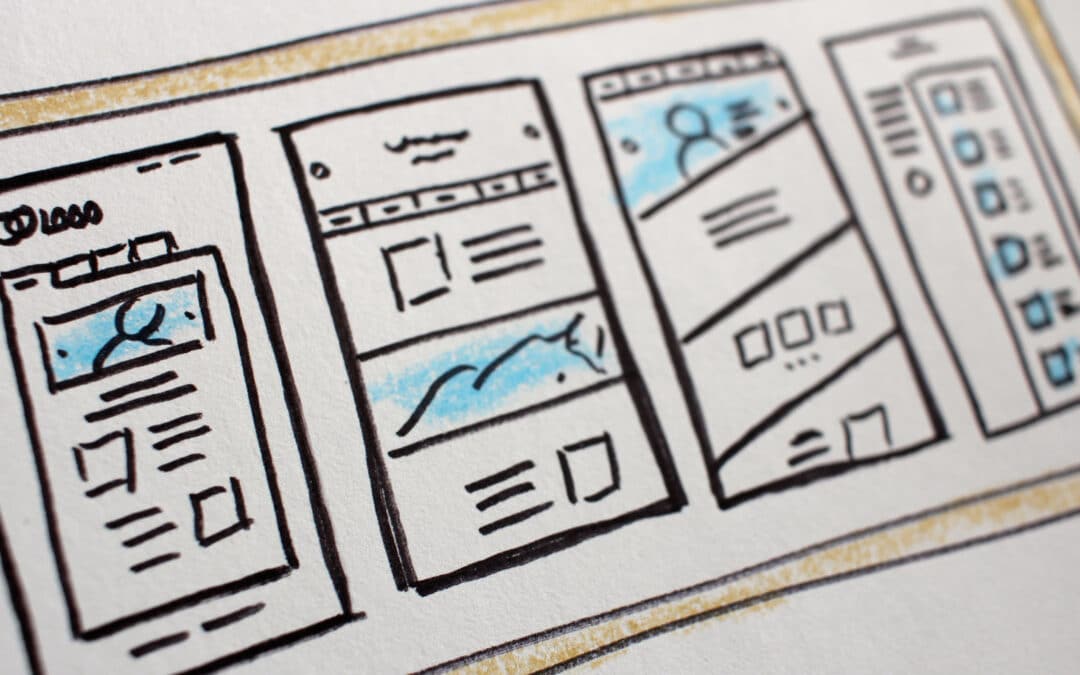If you’ve no idea where to start with regards to building a website then our basic guide is here to help. Guiding you through each step of the process and breaking down what you need to know.
Basic guide to Domain Registration
This is essentially your own unique address for your site and how people will find you on the web.
Ideally you want this to be short and easy to pronounce and spell but also descriptive (so if you’re a plumber in dublin then dublinplumbers.ie would be ideal).
Try to avoid hypens The internet has been around a long time now so good ones are hard to find.
You can use any
domain registration site to check whether a domain is available or in use. The most common top level identifier here in Ireland is obviously a .ie and .irish, but there is a huge list of
top level identifiers (or top level domains in internet speak). Some examples are .biz, .club, .museum, .eu. ,net, .com, .co,.ai. Some also have rules on who can register them.
Costs range from 5.99 – 159.99 and are usually per annum, and usually the first year is cheaper. It’s important to note that only one person or entity can own a domain name at a time so it’s important that you renew each payment cycle or you may lose it. There are hundreds of companies that have registered thousands of domain names, and you can make an offer if a domain is registered.
Basic guide to Hosting
This is where your domain and subsequent website will live. Hosts are computers that reply to requests for the pages on your website.
Hosting requires renting space on these servers and there are different types of hosting available depending on your needs and/or budget.
Shared hosting – This is exactly as it says on the tin, your website will be on a server shared with other websites. This type of server will not be best for handling large amounts of traffic but is ideal for small businesses or individuals not expecting much traffic. Typically though, your website will share a server with 1500 or so others. It can affect your search engine position and user experience if your website is slow.
VPS Hosting (Virtual Private Server) – This type of server is still shared but you have your own dedicated section of it. This is there to support businesses that have growing traffic/communication and is usually a gateway or halfway house to a dedicated server.
Dedicated Server Hosting – This is where you or your business rents a whole server to itself. This lends itself to bigger businesses that have more traffic. This is also the most costly.
Both domain registration and hosting are pretty simple and have limited options. A website build can be anything from a simple landing/splash page (single page with product/service details and contact information) to a fully interactive site with e-commerce capability.
Basic guide to building your Website
This is the part you’ll want to give the most thought to starting off. We would advise sitting down and determining exactly what you want the site to do in as much detail as possible.
Look at competitors, both existing and potential. Determine your audience and how you’re going to drive traffic. Do you want to start a blog or an online shop?
There are a few ways you can approach this. You can use a website builder yourself, usually the most cost-effective route. All have various offers but expect to pay a monthly or annual fee and some are quite restrictive in what you can do.
You can also build yourself a website from the WordPress platform. This will likely give you more flexibility but you will likely need some degree of technical knowledge to get it up and running well.
You can also hire designers/builders who will ensure you get the best return on your investment.
We build all our websites on common content management platforms (CMS) such as WordPress or Joomla depending on the end goal and complexity. We can also build bespoke web applications; we use the ruby-on-rails platform for that.
Using wordpress or joomla for your website gives you the best chance of ‘future-proofing’ your website, meaning you can always add functionality to your website at a later date as your business and traffic grow.
These platforms are commonly called CMS or content management systems. This means that you will be able to change certain elements of the site yourself once it’s built. You’ll be able to add posts, edit your content, add products, update prices, add functionality etc. from your own computer.
Website Development Costs
What costs are involved in hiring us? Well that depends entirely on what you need, how many pages, whether you need photography, e-commerce functionality, newsletter signups, popups, help desk, social-media integration etc. will all play a role.
To give you an idea though please see our
website cost estimator on our website.
We host all our websites on tuned hosting so they are lightning fast.
This will give you a basic idea of what to budget for. If you need a more specific cost though that you don’t see on our estimator please touch base with us.

